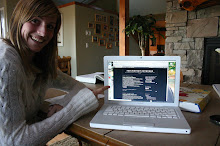Jane Adams: established nation's first settlement house, in Chicago, in 1889.
Hull House: nations first "settlement house," intended to help immigrant urban poor cope with city life.
Billy Sunday: former major league baseball player who became the most theatrical evangelical preacher of his day, elevated opposition to saloons and "liquor trust."
Walter Rauschenbusch: led Social Gospel movement- emphasized duty of christian duty to work for the social good.
Eugene V. Debs: 1912 Socialist Party presidential candidate. Attracted 6% of vote.
Socialist Party of America: founded in 1901, peaked in popularity in 1912, stood for the transfer of control over industry from a few industrialists to the laboring masses.
"Muckrackers:" investigative journalists who exposed government and other corruption, encouraged by increase in newspaper and magazine circulation as well as public interest in "realism."
The Jungle: about corruption and grossness of the industrialized meat-packing industry in Chicago.
Upton Sinclair: socialist journalist slash author of The Jungle.
Ida B. Wells: black activist who criticized Booker T. Washington's message, that blacks should accept segregation and disenfranchisement as unavoidable and focus their energies instead on self-help and self-improvement.
City Manager: meant to overcome problems in the city commission plan, commission continued to set policy, but policy implementation now rested with a "chief executive." This official, who was appointed by the commissioners, would curtail rivalries and deter outside influence.
City Comission: shifted municipal power from the city mayor and his aldermen to five city commissioners, each responsible for a different department of city government.
Seventeenth Ammendment: direct election of senators. Basically.
Primary: system designed to undermine power of party bosses, enabled voters to choose candidates
Sherman Anti-Trust Act: finally used by Roosevelt in 1902 to prosecute the Northern Securities Company, a $400 million monopoly that controlled all railroad lines from Chicago to Washington State.
Pure Food and Drug Act: passed in 1906, protected the public from fraudulently marketed and dangerous foods and medications.
1908 Springfield Riot: a mob of whites attacked black businesses and individuals; a force of 5,000 state militia was required to restore order. Two black men were lynched,
J.P. Morgan: banker who brokered Northern Securities Company, shocked by Roosevelt's attack of it
William Howard Taft: thought by Roosevelt the ideal successor, not as good as would have hoped, advocated increased US corporate influence abroad, presidency marked by "trust-busting," and increasing the Interstate Commerce Committee's enforcement ability.
"New Nationalism": newly fortified federal government under Roosevelt, ambitious reform program that called for the federal government to stabilize the economy, protect the weak and restore social harmony.
"Bull Moose" Party: Roosevelt and followers who left the Republican party for the new Progressive Party, nominated Roosevelt for president and advocated reform by way of sweeping regulation of corporations, extensive protections for workers, sharply graduated income tax, and women suffrage.
Woodrow Wilson: New Jersey lawyer, teacher, New Jersey governor, "anti-Bryan" democrat, fairly progressive, won 1912 presidential election, wanted to break up trusts
"New Freedom:" Wilson's campaign philosophy of temporary concentration of governmental power in order to dismantle the trusts, but then the government would relinquish its powers
Louis Brandeis; Wilson's nominee for Supreme Court, respected progressive, first Jew nominated to serve
Congressional Government: I HAVE NO IDEA!?!?!?!?!?!?!?
Underwood-Simmons Tariff: 1913, reduced tariff barriers from 40 to 25%
Federal Reserve Act: 1913, strengthened nation's financial structure, established 12 regional banks, each controlled by the private banks in its region, required to deposit an average of 6% into the federal reserve bank.
Federal Trade Commission: intended to regulate business practices, had wide powers to collect information on corporate pricing policies and on cooperation and competition between businesses.
Federal Reserve Board: appointed by the president and responsible for the public, rather than privatte bankers would set policy and oversee activities within the 12 reserve banks.
...Read more
Monday, March 2, 2009
Subscribe to:
Post Comments (Atom)

2 comments:
You're doing a great job.
P.s. There is a backside to the front page
P.s.s. Tucker is very sly.
Dear Anders, I LOVE YOU.
AND
Your shape sheet is going down.
Muahhahhaha (evil laughter.)
Post a Comment